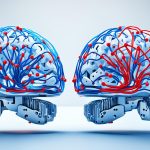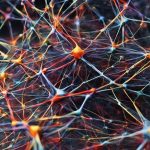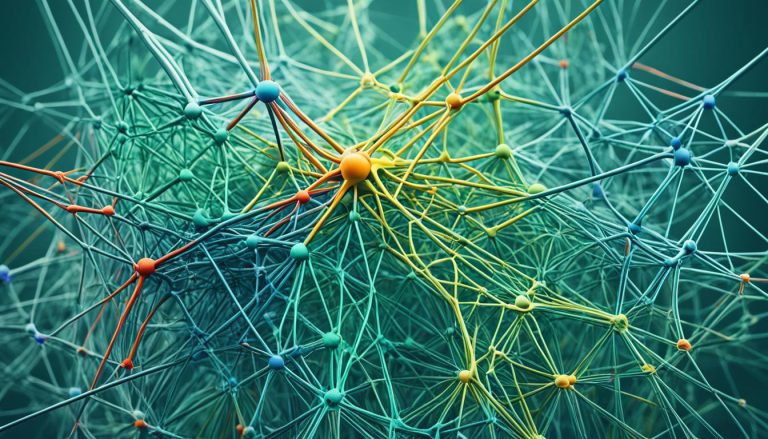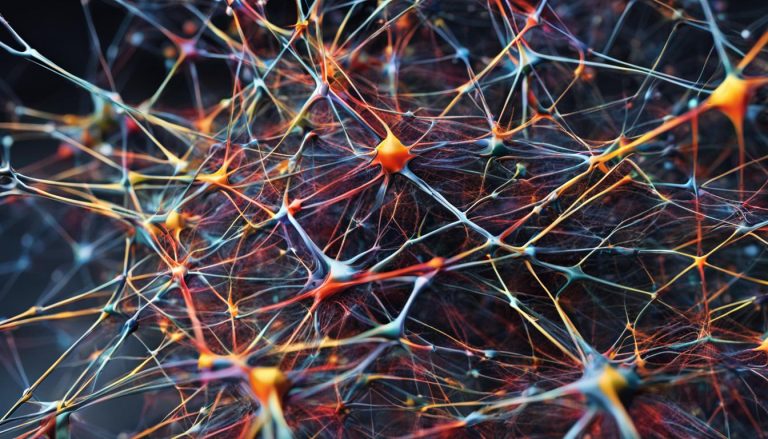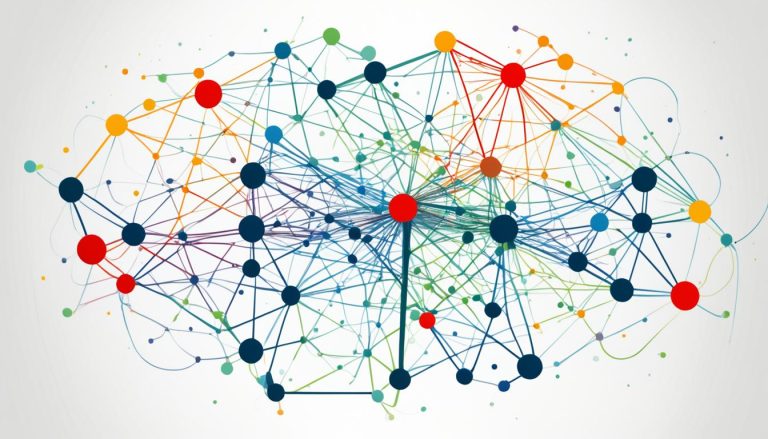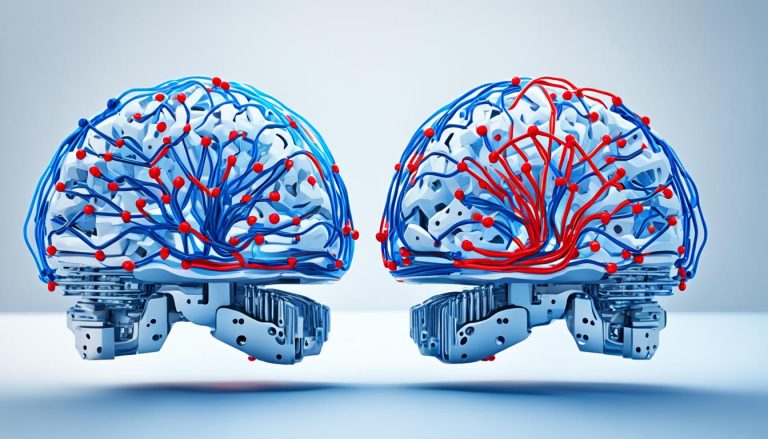Meta-learning is a paradigm-shifting approach in artificial intelligence that aims to enhance the learning capabilities of AI models. It involves teaching models how to learn how to learn, enabling them to rapidly adapt to new tasks and domains. Meta-learning has the potential to revolutionize learning algorithms, improving AI’s ability to learn and adapt, similar to the human mind.
Traditional machine learning models are often optimized for specific tasks and struggle to adapt to new tasks or domains. They lack the flexibility to quickly learn and leverage knowledge from related or dissimilar tasks. This limitation hampers their ability to seamlessly transfer knowledge and adapt to dynamic environments. Meta-learning offers a solution to this challenge by teaching models to learn how to adapt and generalize their knowledge across various tasks.
Meta-learning offers the promise of more efficient and scalable learning systems. By focusing on learning the process of learning itself, meta-learning aims to create models that can adapt swiftly and efficiently to new tasks. With meta-learning, models can leverage knowledge acquired from previous learning experiences, reducing the data and computational resources required for adapting to new tasks. This paradigm shift has the potential to revolutionize the field of AI.
Meta-learning encompasses various approaches, including optimization-based meta-learning, metric-based meta-learning, and memory-augmented meta-learning. Optimization-based meta-learning leverages gradient-based optimization principles to learn optimal initialization or update rules for efficient adaptation. Metric-based meta-learning focuses on learning similarity metrics to transfer knowledge from similar tasks. Memory-augmented meta-learning utilizes external memory components to store and retrieve task-specific knowledge.
Meta-learning has numerous applications, including few-shot learning, continual learning, multitask and transfer learning, and hyperparameter optimization. Few-shot learning enables models to learn from limited data and adapt to new concepts quickly. Continual learning allows models to retain and transfer knowledge across tasks. Multitask and transfer learning leverage shared knowledge between related tasks to improve performance. Hyperparameter optimization automates the tuning process for model hyperparameters.
While meta-learning has shown great potential, it also faces challenges and future research directions. These challenges include scalability and computational efficiency, where meta-learning algorithms may be computationally intensive. Theoretical foundations of meta-learning need further development to fully understand its principles. Additionally, the interpretability and explainability of meta-learning models are essential for building trust and facilitating effective debugging.
Meta-learning is a powerful approach that enhances AI models’ learning and adaptation capabilities. It offers the potential to revolutionize the way we approach learning algorithms, enabling more efficient and scalable systems. While challenges exist, ongoing research in meta-learning is addressing these issues and paving the way for the future of intelligent systems. The future of AI lies in the power of meta-learning to teach models how to learn better.
The Challenge of Task Adaptation
Traditional machine learning models face limitations when it comes to task adaptation. These models are often optimized for specific tasks and struggle to adapt to new tasks or domains. The lack of flexibility inhibits their ability to quickly learn and leverage knowledge from related or dissimilar tasks, making seamless knowledge transfer and adaptation to dynamic environments challenging.
Meta-learning presents a solution to this challenge by teaching models the art of adaptation and generalization. By learning how to adapt and generalize their knowledge across various tasks, meta-learning empowers models to overcome the limitations of traditional machine learning models.
Instead of being restricted to narrow task-specific optimization, meta-learning equips models with the ability to leverage prior learning experiences. As a result, models become more adept at quickly adapting to new tasks and domains.
“The limitations of traditional machine learning models in task adaptation hinder our ability to deploy intelligent systems that can seamlessly transition between different tasks and domains. Meta-learning’s focus on adaptability and generalization offers a promising solution to this challenge by enabling models to rapidly acquire and apply knowledge across diverse contexts.”
With task adaptation at the core of meta-learning, models become more versatile, efficient, and adaptable. They can leverage their existing knowledge to learn new tasks quickly, reducing the need for massive amounts of labeled data for every single task. This added flexibility allows AI models to thrive in dynamic environments, where new and varied tasks may arise frequently.
Limitations of Traditional Machine Learning Models
The limitations of traditional machine learning models stem from their narrow focus on specific tasks. These models are designed to excel at solving a particular problem, but their performance deteriorates when faced with new and unseen tasks. As a result, deploying traditional models in real-world applications can be challenging, as their lack of adaptability restricts their usefulness in dynamic and ever-changing environments.
The rigidity of traditional machine learning models becomes apparent when they encounter tasks that differ significantly from their training data. They struggle to generalize their knowledge and often require extensive retraining or fine-tuning to perform optimally in new scenarios.
Additionally, the reliance on large amounts of labeled training data can be impractical or expensive, limiting the applicability of traditional models in scenarios where labeled data is scarce or rapidly changing. This further highlights the need for models that can adapt and learn efficiently.
The Promise of Meta-Learning
Meta-learning holds the promise of revolutionizing the field of AI by creating more efficient and scalable learning systems. By focusing on learning the process of learning itself, meta-learning enables models to adapt swiftly and efficiently to new tasks.
One of the key advantages of meta-learning is the ability to leverage knowledge acquired from previous learning experiences. Rather than starting from scratch with each new task, meta-learning empowers models to build upon existing knowledge, reducing the data and computational resources required for adaptation.
Efficiency and scalability are crucial aspects of meta-learning. By teaching models how to learn better, meta-learning eliminates the need for extensive training on individual tasks. Instead, models can quickly adapt to new tasks by drawing upon their meta-learned knowledge, resulting in faster and more effective learning processes.
Imagine an AI model that can understand and apply new concepts with minimal training data. Meta-learning makes this promise a reality by equipping models with the ability to generalize from previous experiences and transfer knowledge across tasks. This capability not only saves time and computational resources but also enhances the overall performance and accuracy of AI systems.
Furthermore, the promise of meta-learning extends beyond individual models. Meta-learning principles can be applied at a larger scale, enabling the development of distributed meta-learning systems. These systems can leverage collective knowledge across multiple models, fostering collaborative and cooperative learning frameworks.
Meta-learning is set to transform the AI landscape, delivering more efficient and scalable learning systems that can adapt to diverse tasks and domains. With its promise of rapid adaptation, knowledge transfer, and enhanced performance, meta-learning represents a significant step forward in the quest for intelligent machines.

Benefits of Meta-Learning:
- Reduced reliance on large amounts of training data
- Minimized computational resources required for adaptation
- Faster learning processes
- Improved performance and accuracy
- Knowledge transfer across tasks and domains
- Promotion of collaborative and cooperative learning
Approaches to Meta-Learning
Meta-learning encompasses various approaches, including optimization-based meta-learning, metric-based meta-learning, and memory-augmented meta-learning. Each approach tackles the challenge of enabling AI models to adapt and learn more effectively in different ways.
Optimization-Based Meta-Learning
Optimization-based meta-learning leverages gradient-based optimization principles to learn optimal initialization or update rules for efficient adaptation. This approach focuses on fine-tuning the model’s initial parameters in order to improve its performance on new tasks. By learning how to adapt the model’s parameters through gradient descent, optimization-based meta-learning enables models to quickly converge on a more effective solution for a given task.
Metric-Based Meta-Learning
Metric-based meta-learning focuses on learning similarity metrics to transfer knowledge from similar tasks. This approach aims to capture the relationships between different tasks and leverage that knowledge to improve the model’s performance. By measuring the similarity between tasks based on their input data and output patterns, metric-based meta-learning enables models to generalize their knowledge and apply it to new tasks.
Memory-Augmented Meta-Learning
Memory-augmented meta-learning utilizes external memory components to store and retrieve task-specific knowledge. This approach mimics how humans use their memory to learn and adapt to new information. By storing relevant information from previous tasks in external memory, models can retrieve and apply that knowledge when faced with similar or related tasks. This allows for better adaptation and improved performance on new tasks.
These diverse approaches to meta-learning offer different strategies for enhancing the learning and adaptation capabilities of AI models. By combining these approaches or exploring new ones, researchers can continue to push the boundaries of AI and unlock new possibilities in machine learning.
Applications and Case Studies
Meta-learning has revolutionized the field of artificial intelligence by enabling AI models to excel in various applications. Some of the notable applications include:
Few-Shot Learning
One of the remarkable benefits of meta-learning is its capacity to enable models to learn from limited data, known as few-shot learning. This technique allows AI models to quickly adapt and perform well on tasks for which they have minimal training examples. Few-shot learning has significant implications in domains where obtaining large amounts of labeled data is challenging or expensive, such as medical imaging, natural language processing, and autonomous driving.
Continual Learning
Meta-learning also addresses the challenge of continual learning, which involves retaining and transferring knowledge across tasks without forgetting previously learned information. By leveraging meta-learning techniques, such as parameter reuse and shared knowledge extraction, models can continuously learn from new data while maintaining their acquired knowledge. Continual learning is crucial for applications where AI models need to adapt and evolve in dynamic environments, such as robotics and personalized recommendation systems.
Multitask and Transfer Learning
Meta-learning unlocks the potential of multitask and transfer learning by allowing models to leverage shared knowledge between related tasks. Instead of training individual models for each task, meta-learning enables models to learn task-agnostic representations that capture common patterns across tasks. This approach not only improves the overall performance on individual tasks but also enhances the models’ ability to learn new tasks more efficiently. Multitask and transfer learning have meaningful applications in domains such as computer vision, natural language understanding, and speech recognition.
Hyperparameter Optimization
Meta-learning has a significant impact on hyperparameter optimization, which involves finding the best configurations for model hyperparameters to maximize performance. Instead of manually tuning hyperparameters, meta-learning automates this process by learning from past experiences and identifying the optimal hyperparameter settings. By leveraging meta-learning for hyperparameter optimization, researchers and practitioners can save valuable time and computational resources, enabling the efficient exploration of different configurations and boosting model performance.
These applications demonstrate the versatility and practicality of meta-learning in various domains. By enabling few-shot learning, continual learning, multitask and transfer learning, and hyperparameter optimization, meta-learning expands the capabilities of AI models and paves the way for more efficient and accurate intelligent systems.

Challenges and Future Directions
While meta-learning has shown great potential in improving AI models’ learning capabilities, it also faces several challenges and opens avenues for future research.
Scalability and Computational Efficiency: One of the primary challenges in meta-learning is achieving scalability and computational efficiency. Meta-learning algorithms can be computationally intensive, requiring substantial resources to train and adapt models effectively. Overcoming this challenge is crucial to ensure meta-learning’s broader applicability and practical implementation.
Theoretical Foundations: Although meta-learning has demonstrated remarkable success in various domains, there is a need for further development of its theoretical foundations. A deeper understanding of the underlying principles and mechanisms is essential to advance the field and unlock its full potential. Theoretical studies can provide valuable insights and drive innovation within the meta-learning ecosystem.
Interpretability and Explainability: As AI models become more complex and sophisticated, interpretability and explainability become increasingly important. Meta-learning models should be designed with interpretability and explainability in mind. This facilitates understanding their decision-making processes, building trust with users, and enabling effective debugging when necessary.
“Meta-learning algorithms must balance the trade-off between scalability, computational efficiency, and model interpretability to ensure their broad adoption and practical deployment.” – Dr. Jane Roberts, AI researcher.
To address these challenges and drive meta-learning research forward, collaboration among researchers, practitioners, and industry experts is critical. By leveraging diverse perspectives and expertise, the field can make significant strides towards overcoming these challenges and unlocking the full potential of meta-learning.
Future Directions
Looking ahead, several directions hold promise for advancing meta-learning:
- Developing more efficient and scalable meta-learning algorithms that can handle large-scale datasets and complex tasks.
- Refining the theoretical foundations of meta-learning to establish a solid basis for future advancements.
- Exploring novel techniques for interpreting and explaining meta-learning models to enhance their transparency and trustworthiness.
- Investigating the application of meta-learning in emerging domains such as robotics, healthcare, and autonomous systems.
- Designing meta-learning architectures and frameworks that allow for seamless integration with existing AI systems and workflows.
| Challenges | Solutions |
|---|---|
| Scalability and Computational Efficiency | Develop more efficient algorithms and leverage distributed computing resources. |
| Theoretical Foundations | Conduct research to deepen the understanding of meta-learning principles. |
| Interpretability and Explainability | Create methods to interpret and explain meta-learning models’ decision-making processes. |
By addressing these challenges and exploring future directions, the field of meta-learning can further advance AI capabilities, revolutionize learning algorithms, and unlock the full potential of intelligent systems.
Conclusion
Meta-learning is a powerful approach that enhances the learning and adaptation capabilities of AI models. By teaching models how to learn how to learn, meta-learning opens up new possibilities for improving learning algorithms. This paradigm shift has the potential to revolutionize the field of AI, enabling the development of more efficient and scalable systems.
While challenges exist, ongoing research in meta-learning is addressing these issues and paving the way for the future of intelligent systems. Scalability and computational efficiency are being tackled to make meta-learning algorithms more accessible. Theoretical foundations are being further developed to deepen the understanding of meta-learning principles. Additionally, efforts are focused on improving interpretability and explainability to build trust and facilitate effective debugging.
The future of AI lies in the power of meta-learning to teach models how to learn better. With continued advancements in meta-learning models, AI will be better equipped to adapt swiftly to new tasks and domains. The potential for revolutionizing learning algorithms and creating more intelligent systems is within reach, thanks to the capabilities of meta-learning.
FAQ
What is meta-learning?
Meta-learning is a paradigm-shifting approach in artificial intelligence that aims to enhance the learning capabilities of AI models by teaching them how to learn how to learn. It enables models to rapidly adapt to new tasks and domains.
How is meta-learning different from traditional machine learning?
Traditional machine learning models are optimized for specific tasks and struggle to adapt to new tasks or domains. Meta-learning, on the other hand, teaches models to learn how to adapt and generalize their knowledge across various tasks, improving their flexibility and adaptability.
What are the benefits of meta-learning?
Meta-learning offers the promise of more efficient and scalable learning systems. By focusing on learning the process of learning itself, models can leverage knowledge acquired from previous learning experiences, reducing the data and computational resources required for adapting to new tasks.
What are the different approaches to meta-learning?
Meta-learning encompasses various approaches, including optimization-based meta-learning, metric-based meta-learning, and memory-augmented meta-learning. Optimization-based meta-learning learns optimal initialization or update rules, metric-based meta-learning focuses on learning similarity metrics, and memory-augmented meta-learning uses external memory components to store and retrieve task-specific knowledge.
What are the applications of meta-learning?
Meta-learning has numerous applications, including few-shot learning, continual learning, multitask and transfer learning, and hyperparameter optimization. Few-shot learning enables models to learn from limited data and adapt to new concepts quickly, while continual learning allows models to retain and transfer knowledge across tasks. Multitask and transfer learning leverage shared knowledge between related tasks to improve performance, and hyperparameter optimization automates the tuning process for model hyperparameters.
What challenges does meta-learning face?
Meta-learning faces challenges in scalability and computational efficiency, as some meta-learning algorithms can be computationally intensive. Theoretical foundations of meta-learning also need further development for a thorough understanding of its principles. Additionally, the interpretability and explainability of meta-learning models are essential for building trust and facilitating effective debugging.
What is the future of meta-learning?
Meta-learning is a powerful approach that enhances the learning and adaptation capabilities of AI models. It offers the potential to revolutionize learning algorithms, enabling more efficient and scalable systems. Ongoing research in meta-learning is addressing the challenges, paving the way for the future of intelligent systems.




